Hi there, fellow dog lover! I’m Dr. Candy, your friendly holistic veterinarian. Today, we’re going to talk about a topic that’s close to my heart – Appenzeller Sennenhund Dental Health. You see, our furry friends’ oral health is just as important as ours. In fact, dental health issues can lead to serious complications if not addressed properly.
Appenzeller Sennenhunds, with their playful nature and boundless energy, are a joy to have around. But like all breeds, they have their specific health concerns – and dental health is one of them. From bad breath to gum disease, these issues can significantly affect your dog’s quality of life. But don’t worry! With proper dental care and a bit of knowledge, we can keep our Appenzeller Sennenhunds’ teeth sparkling and their mouths healthy.
So, whether you’re a seasoned Appenzeller Sennenhund parent or considering adopting one, this guide is for you. Let’s dive in and explore the ins and outs of Appenzeller Sennenhund oral health together. Remember, a healthy mouth equals a happy, healthy dog!
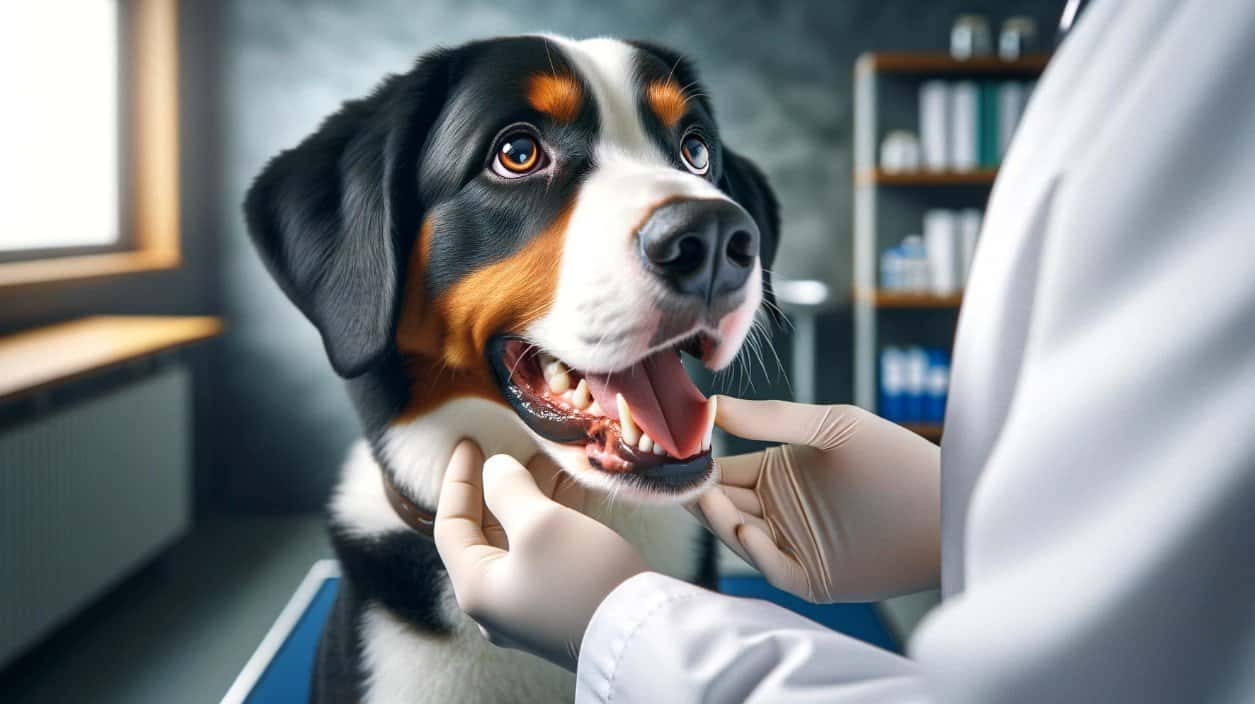
As a holistic veterinarian, I’ve seen firsthand how integral dental health is to the overall wellbeing of our beloved pets. If you’re a proud parent of an Appenzeller Sennenhund, you’ll want to be aware of the potential signs of dental disease in this breed. Noticing these early can be crucial to preventing serious health issues down the line.
Firstly, bad breath is a common sign of dental disease in dogs. While it’s normal for your furry friend to have a certain level of ‘doggy breath’, persistent foul odor can indicate an issue. This is often caused by bacteria buildup in the mouth, a primary cause of periodontal disease.
Changes in eating or chewing habits can also signal dental problems. If your Appenzeller Sennenhund suddenly loses interest in their favorite chew toys, or starts to eat on one side of the mouth, it could be due to oral discomfort. Similarly, excessive drooling or pawing at the mouth can be signs of dental distress.
Visible signs like discolored or broken teeth, inflamed gums, or even visible tartar buildup are more obvious indicators of dental disease. In such cases, it’s crucial to take your Appenzeller Sennenhund to a vet for a thorough dental checkup.
Lastly, behavioral changes can also be a sign of dental issues. Is your usually playful pup becoming increasingly irritable or lethargic? Pain caused by dental disease could be the culprit. Remember, dogs are experts at hiding pain, so subtle changes in behavior can often be the only clue that something’s amiss.
As a dog parent, it’s your responsibility to monitor your pet’s health closely. Regularly checking your Appenzeller Sennenhund’s mouth for any of these signs can help catch dental problems early, improving the chances of successful treatment and preventing further complications. Remember, good dental health isn’t just about fresh breath and pearly whites – it’s a vital part of your dog’s overall wellbeing. So, let’s make dental health a priority in our Appenzeller Sennenhund’s life!
Common Dental Health Issues In Appenzeller Sennenhund
As a veterinarian, I’ve noticed that Appenzeller Sennenhund dental health is often overlooked by many dog parents. This breed, like any other, is susceptible to a range of dental health issues. Let’s discuss some of the most common ones:
- Periodontal Disease: This is the most common dental health issue in Appenzeller Sennenhunds. It starts with buildup of plaque that turns into tartar, leading to gum inflammation (gingivitis). If left untreated, it can progress to periodontitis, causing loss of teeth and damage to the jawbone.
- Bad Breath: Chronic bad breath in your Appenzeller Sennenhund may be a sign of an underlying dental issue. It’s not just unpleasant; it could be a symptom of serious dental disease.
- Broken Teeth: Appenzeller Sennenhunds are active dogs and may break a tooth while playing or chewing on hard objects. Broken teeth are not just painful, but can also lead to infection.
- Tooth Decay: Though less common than in humans, Appenzeller Sennenhunds can still suffer from cavities, especially if their diet is high in sugars and they do not receive regular dental care.
Remember, regular check-ups are crucial for maintaining Appenzeller Sennenhund dental health. Early detection of these issues can prevent them from becoming serious problems. As a responsible dog parent, it’s important to be aware of these common dental health issues and take preventative measures to ensure your Appenzeller Sennenhund’s oral health is in top shape.

When it comes to maintaining your Appenzeller Sennenhund’s dental health, there are a few conventional treatments that are commonly used. These treatments are often recommended by veterinarians and can significantly improve your dog’s oral health.
Anesthetic Dental Cleanings
One of the most common treatments is anesthetic dental cleanings. This procedure involves putting your dog under anesthesia and performing a thorough cleaning of their teeth and gums. This is often necessary for dogs that have severe dental disease, as it allows the veterinarian to remove plaque and tartar build-up, check for any signs of dental disease, and treat any existing issues.
While anesthetic dental cleanings can be highly effective, they do come with some risks. Anesthesia can be risky for dogs with certain health conditions, such as heart problems, seizures, or extreme age. It’s important to discuss these risks with your vet and consider alternative treatments if your Appenzeller Sennenhund is not a good candidate for anesthesia.
Potential Individual Health Obstacles
When considering dental treatments for your Appenzeller Sennenhund, there are several health obstacles that may affect what treatments are appropriate. Dogs with heart problems, for example, may not be able to undergo anesthesia due to the increased risk. Similarly, dogs with drug sensitivities may react negatively to certain medications used during dental procedures.
Seizures can also be a concern. Dental procedures can be stressful for dogs, and this stress can potentially trigger a seizure in dogs that are prone to them. Lastly, age can be a significant factor. Older dogs may not be able to tolerate anesthesia or other invasive dental procedures as well as younger dogs.
In these cases, it’s crucial to work closely with your vet to find a treatment plan that is safe and effective for your Appenzeller Sennenhund’s individual needs. This may involve non-anesthetic dental cleanings, at-home dental care, or alternative treatments.
Remember, every dog is unique and what works for one may not work for another. It’s all about finding the best dental health solutions for your Appenzeller Sennenhund.
Let’s dive into Dr. Candy’s holistic approach to oral and dental health for your Appenzeller Sennenhund. This approach is all about preventive care and maintaining a healthy lifestyle for your four-legged friend.
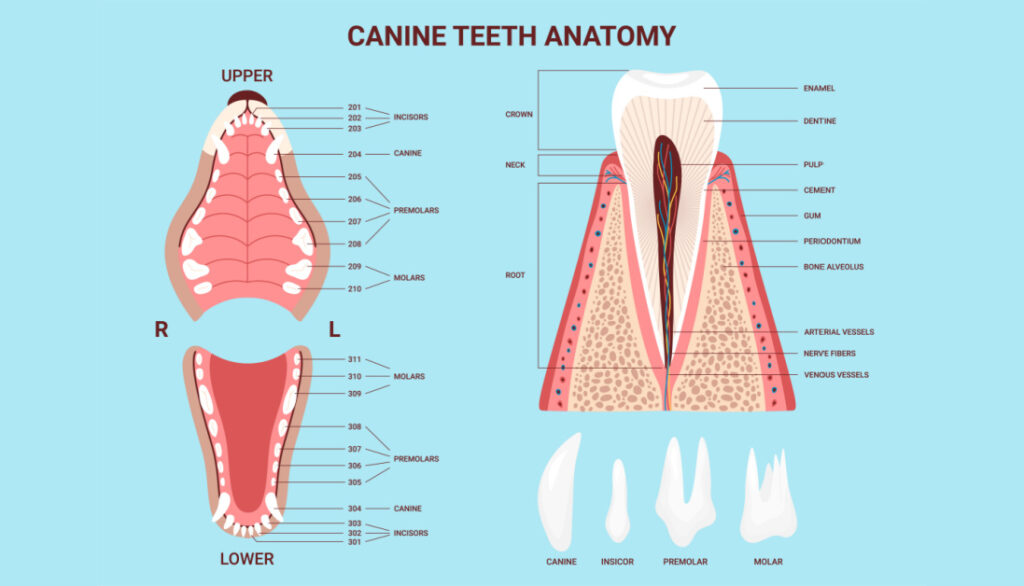
Diet: Low Carbs, Avoid Added Sugars, Enzymes In Fresh Food
One of the most effective ways to ensure your Appenzeller Sennenhund’s dental health is through their diet. A diet low in carbohydrates is crucial as carbs can easily stick to your dog’s teeth, leading to plaque buildup and eventually to periodontal disease. Avoiding added sugars is also important, as sugar is a major contributor to tooth decay.
Try to incorporate fresh foods into your pet’s diet. Fresh foods are rich in enzymes which can help to break down plaque and tartar build-up on your dog’s teeth. Foods such as carrots, apples, and celery can be great natural teeth cleaners. Remember, always supervise your dog when they are eating to prevent choking.
Oral Health Specific Probiotics
Probiotics aren’t just for humans – they can also be a great addition to your dog’s oral health routine. Probiotics are beneficial bacteria that can help to balance the bacteria in your dog’s mouth, reducing bad breath and helping to prevent dental disease.
I recommend Probiora for Dogs, an oral health targeted probiotic. This easy-to-use probiotic is specifically designed for dogs and can be sprinkled directly onto your dog’s food. It’s a simple way to boost your pet’s oral health and help keep their teeth clean and healthy.
Remember, dental health is an essential part of your Appenzeller Sennenhund’s overall well-being. By incorporating a low-carb diet, avoiding added sugars, providing fresh foods, and using oral health specific probiotics like Probiora, you can help to ensure your dog’s teeth remain healthy and strong for years to come.
Stay tuned for the next section where we’ll discuss recommended dental chews and products for your Appenzeller Sennenhund. We’ll also discuss the failure of commercially promoted dental chews and provide our top recommended products.
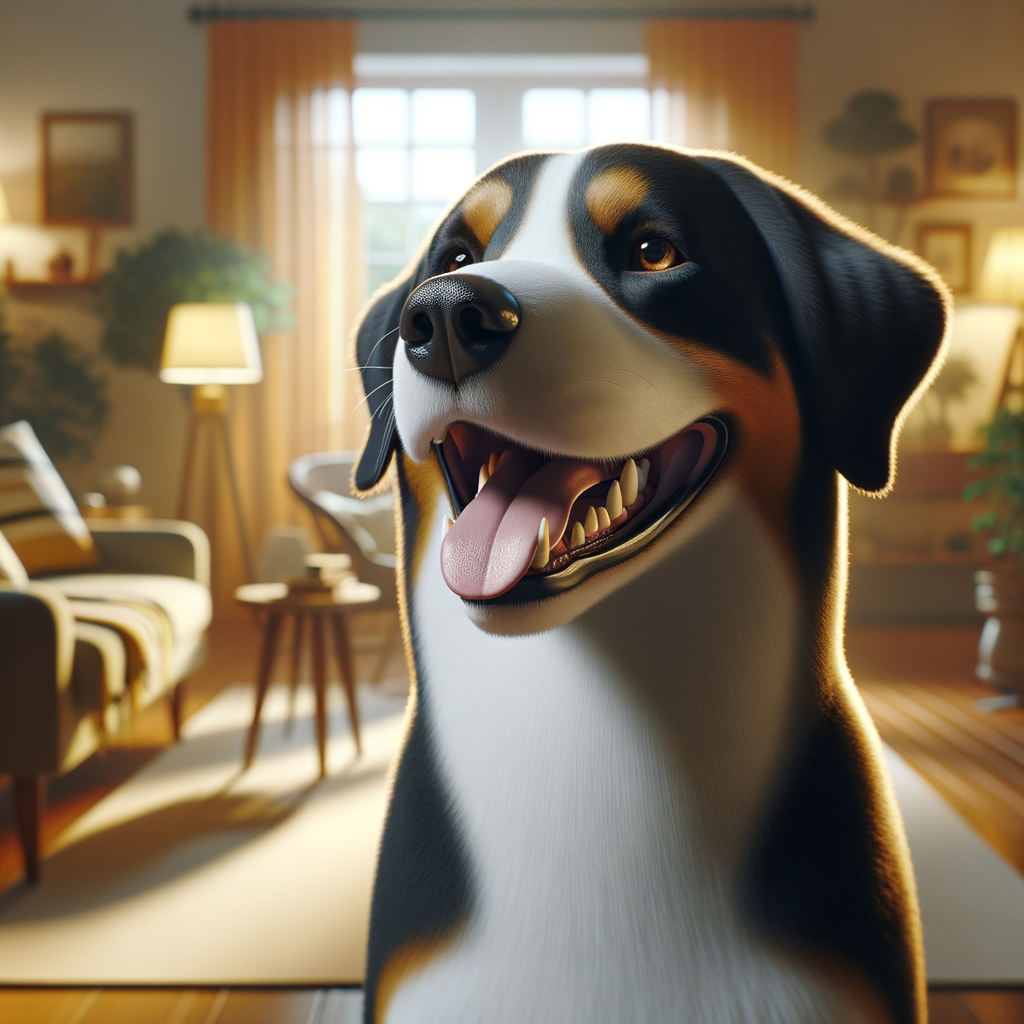
Recommended Dental Chews & Products For Appenzeller Sennenhund
When it comes to maintaining your Appenzeller Sennenhund’s dental health, not all products are created equal. Unfortunately, many commercially promoted dental chews simply fall short. They are often loaded with artificial flavors, preservatives, and even sugar, which can contribute to dental decay rather than prevent it. Moreover, they rarely provide the level of cleaning promised, leaving plaque and tartar behind.
Adding to the concern, some pet parents resort to drinking water additives, believing they can help combat bad breath and improve oral hygiene. However, these additives can disrupt the natural flora in your dog’s mouth, killing off beneficial bacteria and potentially leading to other health issues.
So, what should you use instead? Let’s look at some healthier, more effective alternatives for Appenzeller Sennenhund Dental Health.
The Failure of Commercially Promoted Dental Chews
While they may be marketed as beneficial, many commercial dental chews are ineffective and potentially harmful. They can contain unhealthy ingredients and fail to provide the thorough clean necessary to maintain good oral health. It’s crucial to choose products that are not only safe but also effective in keeping your dog’s teeth clean and healthy.
Dr. Candy’s Recommended Dental Chews & Products
As a healthier alternative to commercial products, Dr. Candy recommends focusing on single-source natural proteins. These can include:
Tendons
Tendons are a fantastic natural chew for your Appenzeller Sennenhund. They are tough and fibrous, which helps to scrape off plaque and tartar from your dog’s teeth. Plus, they are a good source of protein and collagen, promoting good joint health.
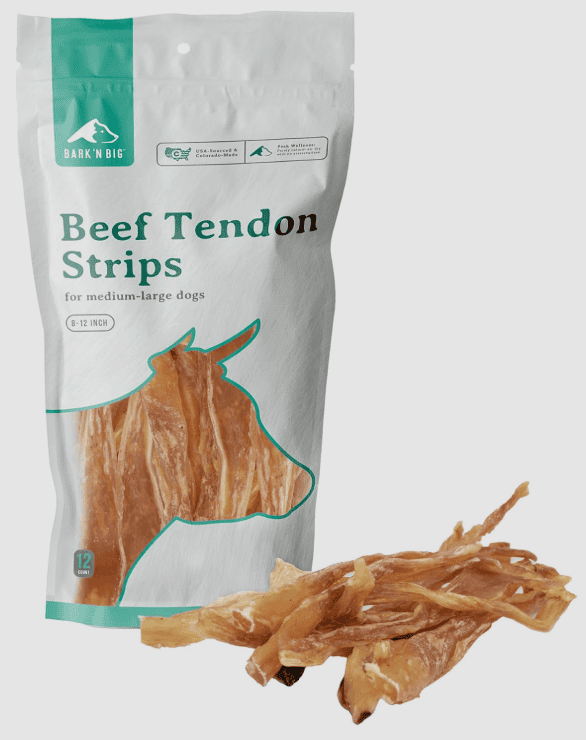
Raw Marrow Bones
Raw marrow bones are another excellent choice for maintaining your Appenzeller Sennenhund’s dental health. They are a natural source of calcium and phosphorus, which are essential for healthy teeth and bones. Furthermore, the act of gnawing on bones can help to clean your dog’s teeth and gums.
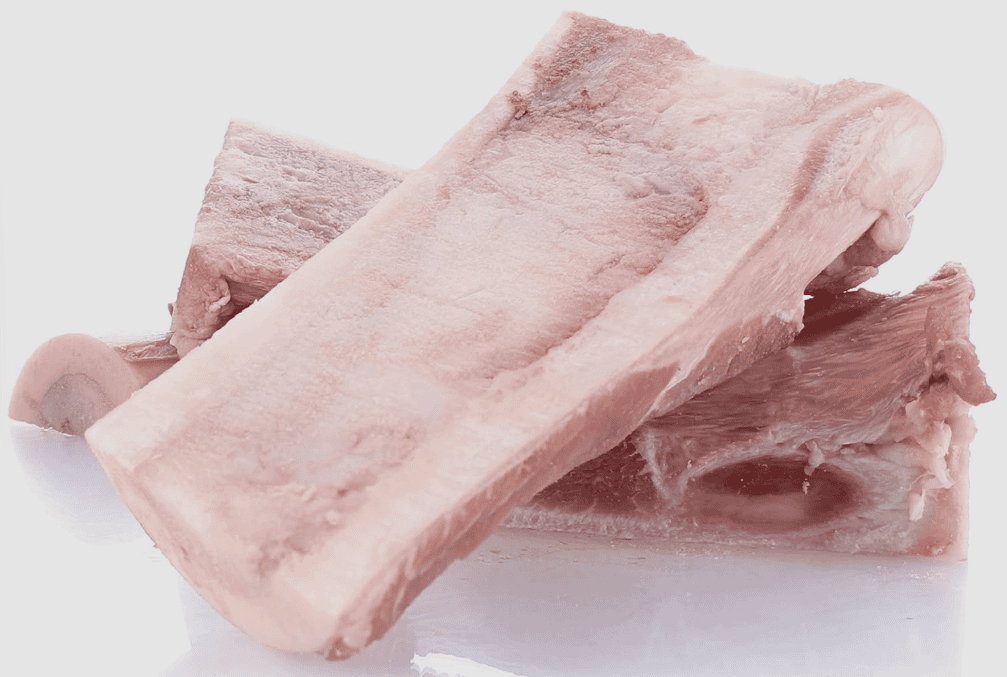
Bully Sticks
Bully sticks are made from 100% beef muscle, providing a natural and digestible chew for your Appenzeller Sennenhund. They can effectively remove plaque and tartar and are a good source of protein. However, always supervise your dog while they’re chewing on a bully stick to prevent any choking hazard.
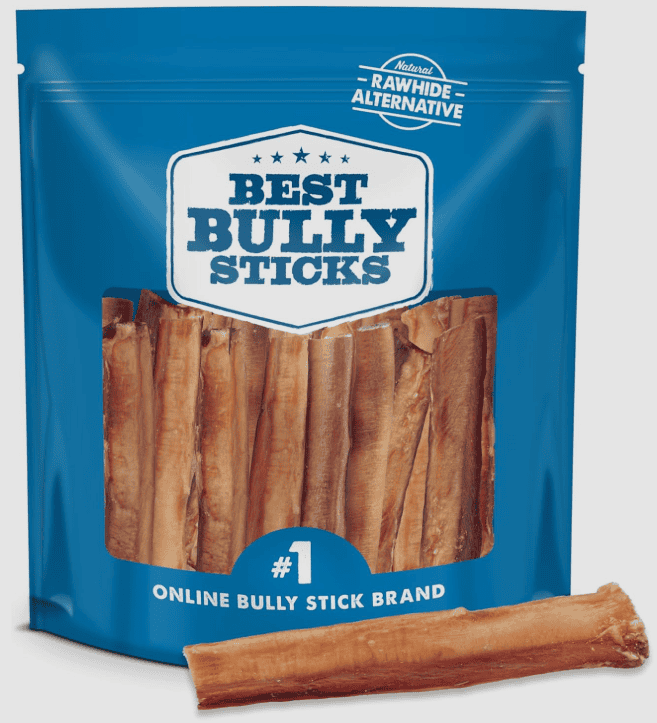
Remember, your Appenzeller Sennenhund’s dental health is a crucial part of their overall well-being. By choosing the right products and maintaining a consistent oral hygiene routine, you can ensure that your furry friend stays happy and healthy, with a sparkling smile to boot!
Frequently Asked Questions
1. What causes bad breath in Appenzeller Sennenhunds?
Bad breath in Appenzeller Sennenhunds can be caused by various factors such as poor dental hygiene, gum disease, tooth decay, or the presence of bacteria in the mouth.
2. How can I improve my Appenzeller Sennenhund’s dental health?
To improve your Appenzeller Sennenhund’s dental health, you can:
- Brush their teeth regularly using a dog-specific toothbrush and toothpaste.
- Provide dental chews or toys that help remove plaque and tartar.
- Feed them a balanced diet that promotes good oral health.
- Schedule regular dental check-ups with a veterinarian.
3. Are there any specific dental products recommended for Appenzeller Sennenhunds?
There are various dental products available that are specifically designed for dogs, including Appenzeller Sennenhunds. These may include toothbrushes, toothpaste, dental chews, and water additives. It is recommended to consult with your veterinarian to determine the most suitable products for your dog.
4. How often should I brush my Appenzeller Sennenhund’s teeth?
It is recommended to brush your Appenzeller Sennenhund’s teeth at least 2-3 times a week. However, daily brushing is even better for maintaining good dental hygiene and preventing bad breath.
5. What signs should I look for to detect dental problems in my Appenzeller Sennenhund?
Some signs that may indicate dental problems in your Appenzeller Sennenhund include:
- Bad breath
- Excessive drooling
- Red or swollen gums
- Difficulty chewing or eating
- Loose or missing teeth
- Visible tartar or plaque buildup
- Changes in appetite or behavior
